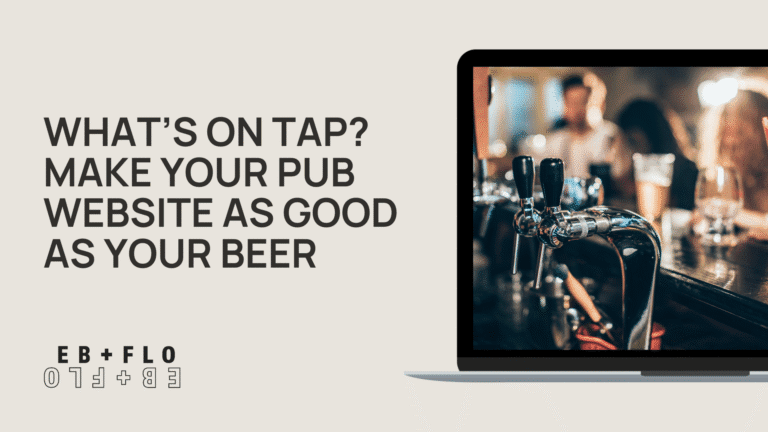As search engines continue to be the go-to for finding solutions, standing out online has never been more crucial. Businesses are constantly seeking ways to improve their online visibility and attract more potential customers.
While many focus on optimising their main website pages, there’s a powerful tool that often gets overlooked: blog content.
Let’s explore how the strategic use of blog posts can dramatically enhance your website’s search engine optimization (SEO) performance, driving organic traffic and establishing your brand as an industry authority.
The SEO Foundation: Why Blogs Matter
Search engines like Google are constantly crawling the web, looking for fresh, relevant, and valuable content to serve their users. Blogs provide exactly what these algorithms crave – regular updates that signal your website is active, current, and worth ranking higher in search results.
Unlike static pages that rarely change, blog content creates a dynamic environment where new information is regularly published. This constant stream of fresh content tells search engines that your website is alive and actively maintained, which can significantly boost your overall domain authority and search rankings.
Strategic Keyword Targeting Without Clutter
One of the most significant advantages of blog content is its ability to target specific keywords without cluttering your main website pages. Your homepage, about page, and service pages need to maintain a clean, professional appearance while serving their primary purpose of converting visitors into customers. However, these pages can only realistically target a limited number of keywords without becoming unwieldy or confusing.
Blog posts solve this challenge elegantly. Each article can focus on specific long-tail keywords, niche topics, or industry-related terms that your target audience is searching for. This approach allows you to cast a wider net in search results while keeping your main pages focused and user-friendly.
Fresh Content is the Search Engine Signal
Search engines prioritise websites that demonstrate ongoing activity and relevance. Regular blog posting sends a clear signal that your business is current, engaged, and actively providing value to your audience. This freshness factor is particularly important in industries where trends change rapidly or where timely information is crucial.
When you consistently publish high-quality blog content, search engines begin to recognise your site as a reliable source of current information. This can lead to more frequent crawling of your website, faster indexing of new content, and improved rankings across all your pages – not just your blog posts.
Creating Shareable Content
Blog content naturally lends itself to social media sharing, creating valuable backlinks and expanding your reach beyond traditional search results. A well-written blog post can be repurposed into Instagram carousels, LinkedIn posts, short-form videos, and more – allowing you to extend the life and visibility of your content. We’ve outlined how to do this effectively in this blog post on turning blogs into social content.
While social signals aren’t a direct ranking factor, they increase visibility and drive consistent traffic to your website. Even more valuable are the backlinks that come when other websites link to your content – strong indicators of authority and relevance in the eyes of search engines.
To encourage sharing, create blog content that resonates with your audience, includes actionable insights, and is easy to repackage for various platforms.
The Power of Internal Linking
Blog content provides numerous opportunities for strategic internal linking, which is crucial for SEO success. Each blog post can link to relevant service pages, product descriptions, or other blog posts, creating a web of connections that helps search engines understand your site’s structure and hierarchy.
Internal links serve multiple purposes: they guide visitors to related content, increase the time users spend on your website, and distribute link equity throughout your site. When done strategically, internal linking can boost the rankings of your most important pages by passing authority from your blog posts to your commercial pages.
Demonstrating Expertise and Authority
In today’s information-rich environment, establishing your business as an industry expert is more important than ever. Blog content provides the perfect platform to showcase your knowledge, share insights, and demonstrate thought leadership. This expertise doesn’t just impress human readers, it also signals to search engines that your website is an authoritative source of information.
Google’s E-E-A-T (Experience, Expertise, Authoritativeness, Trustworthiness) guidelines emphasise the importance of demonstrating expertise in your field. Regular blog posts that dive deep into industry topics, share case studies, offer professional opinions, and provide valuable insights help establish this expertise in the eyes of both users and search engines.
The Takeaway
Blog content isn’t just a nice-to-have addition to your website. It’s an essential component of a comprehensive SEO strategy. It gives your brand a voice, boosts your visibility, and drives real business results. When blog content is created with SEO best practices in mind while genuinely serving your audience’s needs, it becomes a powerful tool for long-term digital marketing success.
Need help planning or writing blog content that works for SEO and your audience? We’d love to help. Let’s chat about building a strategy that brings your brand to life online.




